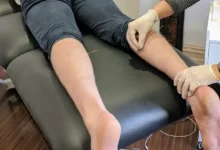
The Complete Guide That Makes Starting a New Medical Practice Simple
Have you been working as a medical practitioner in a healthcare or hospital environment for years and feel like you need a change? Starting a private medical practice may be the answer for you.
According to a survey by the AMA, less than 49% of patient care physicians work in physician-owned health care settings nowadays.
That means there are plenty of patients out there who prefer a more intimate environment, waiting for you to get started.
Find out what’s involved in opening a new medical practice before you take the plunge.
Table of Contents
Benefits of Owning a Medical Practice
Like any small business owner, you face a few risks and uncertainties when starting a medical practice. It will take a few years to build up your client base and start making a profit.
Yet it pays to focus on the benefits of being the boss while you go through this difficult phase. These are:
- Autonomy over every decision
- Flexibility regarding patient care options
- More free time
- Higher earning potential
If you’re prepared to put in the hard work and patience required to reap these benefits, starting a medical practice is a great option for you.
First Steps in Opening a New Medical Practice
You don’t need to resign from your job to get started planning your medical practice. Before you hand in your resignation letter, these are the things to consider.
Work on a Business Plan
Every business needs a business plan. You’ll need it to get clarity on the way forward, calculate your risks, and apply for the financing you need to get started.
These are the steps involved in setting up a business plan:
- Create a realistic timeline
- Set out your objectives
- Work on a financial plan
- Calculate your budget
It’s a good idea to conduct some preliminary market research too. Is there a demand for your specialty in your area? How many other medical practices will you need to compete with? Can you consider relocating or commuting?
Research
You must actively research every aspect of opening a medical practice while you’re still working.
Speak to other doctors in the area, they can offer much-needed practical advice about how they got started as well as the day-to-day operations of a medical office.
They can also offer advice on whether you should hire a consultant to guide you through the process and help you avoid any pitfalls they’ve encountered along the way.
IF possible, spend some time in a local doctor’s office to get an idea of how things work.
Picking a Location
If you’ve decided that starting a practice suits your needs, the next step is finding somewhere to open your business.
Research the physician to population ratio in different neighborhoods. You’ll need to place yourself in an area where there’s a demand for your services.
One way to check the demand for your specialty is by checking if local hospitals are hiring people with your skills. If they are, you know you’ll have plenty of work to do.
You can also assess the patient wait time at local medical offices. The longer they have to wait, the higher the need for a new kid on the block.
Don’t discount your preferences when it comes to opening a medical practice. After all, you’ll spend most of your time at this location.
Find Financing
Some physicians use their savings to pay their start-up costs, but it’s not ideal to go this route. Others apply for a personal loan or a business loan to get started.
It might seem counterproductive to start your search for financing before you’ve finalized every detail, but it pays to know how much you’re able to borrow before you get started.
Be sure to compare interest rates when shopping around for loans to ensure you get the best deal.
The best way to get finance when starting a medical practice is from your local hospital. Some hospitals enter into contracts with private practitioners if they need someone with their specialty.
Often, a local hospital can guarantee your income for a year or two and help you with equipment or other start-up costs.
Tackle First Line Tasks
Once you’ve decided that starting a new medical practice is a plausible and attractive option for you, it’s time to get to work. These are the steps you need to take next.
Set Up a Legal Business Entity
You must set up your business as a legal entity before you do anything else. You’ll need these documents every step of the way forward.
It’s worth paying an attorney to handle all this paperwork for you. Within a few weeks, you’ll have a legitimate business, and you can apply for a new tax ID number.
Find a Suitable Medical Office
Select an office space within the area of the greatest demand. If you’re working with a local hospital, they might already have somewhere in mind.
These are the steps involved in finding the ideal office for your practice:
-
- Determine your office space requirements
- Choose an appropriate site
- Negotiate lease and sign it
- Undergo the relevant fire and safety inspections
- Obtain a Certificate of Occupancy
- Determine the best office hours for your location
- Design and manufacture signage
- Set up utilities if necessary
Hiring a commercial real estate professional helps streamline this process.
Open a New Bank Account
You must have a separate bank account for your business. Medical insurers won’t pay directly into a personal bank account.
If you’re getting a business loan, your bank will help you set up a new account.
Get Insurance
Every doctor must have malpractice insurance, but you’ll also need vehicle insurance, third-party insurance, disability insurance, and business insurance for your workplace and its contents.
If you plan to buy a company car, you’ll also need auto insurance.
Undergo Medical Credentialing
It’s important to obtain an NPI (National Provider Identifier). This identifies you as an individual physician and you’ll need it if you want to cater to Medicare and Medicaid patients.
This process can take up to three months, and you’ll need to familiarize yourself with the processes for submitting payment claims for each provider first. You must also provide proof of your malpractice insurance, work history, hospital privileges, and attestations.
One final part of credentialing involves filling out the forms required by the DEA, so you can legally prescribe controlled substances.
Staffing Your Medical Practice
You’ll need a minimum of one staff member to help you run your practice. Hiring an office manager is a good place to start.
They can manage the day-to-day operations of your business, handle reception duties for the time being and then expand their services to include HR tasks as your business grows.
It’s critical to choose someone with previous medical practice management experience and bet them thoroughly before you get them on board.
Set Up Contracts
You can work with your office manager to figure out employee salaries, contracts, and benefits. Decide whether you’ll offer retirement plans or other benefits before you start hiring other personnel.
It helps to have your employment contracts ready to go when you start hiring new people.
Figuring Out the Operational Details
Once you’ve secured a lease on your office, you’ve still got plenty of work to do before you start assisting your first patients. These are some things to sort out right away:
Decide on Necessary Software
Practice management software is crucial for running your office efficiently. You’ll need it to manage your payroll, billing, timekeeping, and other vital business aspects.
You’ll also need medical billing software that features all the necessary aspects of medical billing and coding you need to submit claims to health insurers. Likewise, you should consider training programs for any employees that will use this software.
You could also outsource medical billing services at the outset, and progress to a more complex system as your business grows.
Buy the Equipment You Need
Of course, you’ll need computers to run the software you choose as well as other important medical office supplies, like:
- Office furniture and waiting room furniture
- Medical equipment and supplies
- Copiers
- A telephone system and answering service
- Stationery
Even with a comprehensive software system to help manage your business, you might still need to outsource Some professional services, like accounting, IT support, a bookkeeper, an attorney, and a financial planning advisor.
Other Steps Before Opening Your Practice
There is a host of other finer details to iron out before you open your doors.
You must determine your fee schedule in advance. You’ll need to comply with any restrictions set up by the health insurers you hope to bill and make sure your fees aren’t too expensive for the people in the area you serve.
Local doctors can provide some much-needed guidance on this topic.
You’ll also need HCFA 1400 paper billing forms to handle your billing in-house as well as ICD 10 and CPT coding books.
Remember to set up a system for credit card payments, design a logo, and design and print letterheads and patient forms for your business.
Get your hands on an OSHA policy handbook and make sure your office is compliant before your employees start their first day.
Two final aspects to finalize include a medical waste disposal service and a document shredding service.
Marketing Your Medical Practice
When you open a new business, you can’t expect to sit back and wait for customers to come to you. Many medical practitioners neglect to market their practice sufficiently.
Nowadays, there are many affordable and easy ways to get the word out there about your business.
A website is a vital marketing tool nowadays as more people begin their search for goods and services online. According to Google, 84% of people search for healthcare services online.
Health searches about symptoms of various ailments are also at an all-time high. Adding a blog filled with useful information can help drive curious customers to your website and let them discover your new practice.
Remember, you must optimize your website for mobile search, too, so people can find your practice wherever they are.
If you’re unsure about marketing your business online, you can hire an SEO company or copywriting service to help you get started.
Social media is another important marketing tool that can attract attention to your business.
Pitfalls Involved in Starting a Medical Practice
There are a few stumbling blocks most health practitioners encounter when starting their medical practices. Here’s how to navigate the most common ones:
- Use a project management tool to keep you organized and on track
- Get everything in writing and keep it in a safe place
- Budget for delays at every turn
- Follow up on promises made by suppliers and contractors
- Research, research, research
- Ask for guidance from those who’ve done this before
Take time for self-care amid all the chaos. As a medical professional, you know how essential it is to safeguard your mental health.
Take a step back occasionally for a break from all the planning and gain perspective on everything you’ve achieved so far.
One Step at a Time
Opening a new medical practice isn’t difficult, but it’s time-consuming. So, it’s important to stay in your current job for as long as you can before you set out on your own.
With a little luck, you can have everything up and running shortly after you leave work and start earning money as soon as possible.
It will take time to get your business running smoothly, but the wait is worthwhile when you consider the benefits of working for yourself.
Would you like some more ideas on how to get started and set your business on the path to success? Keep browsing our blog for all the best tips and information.








